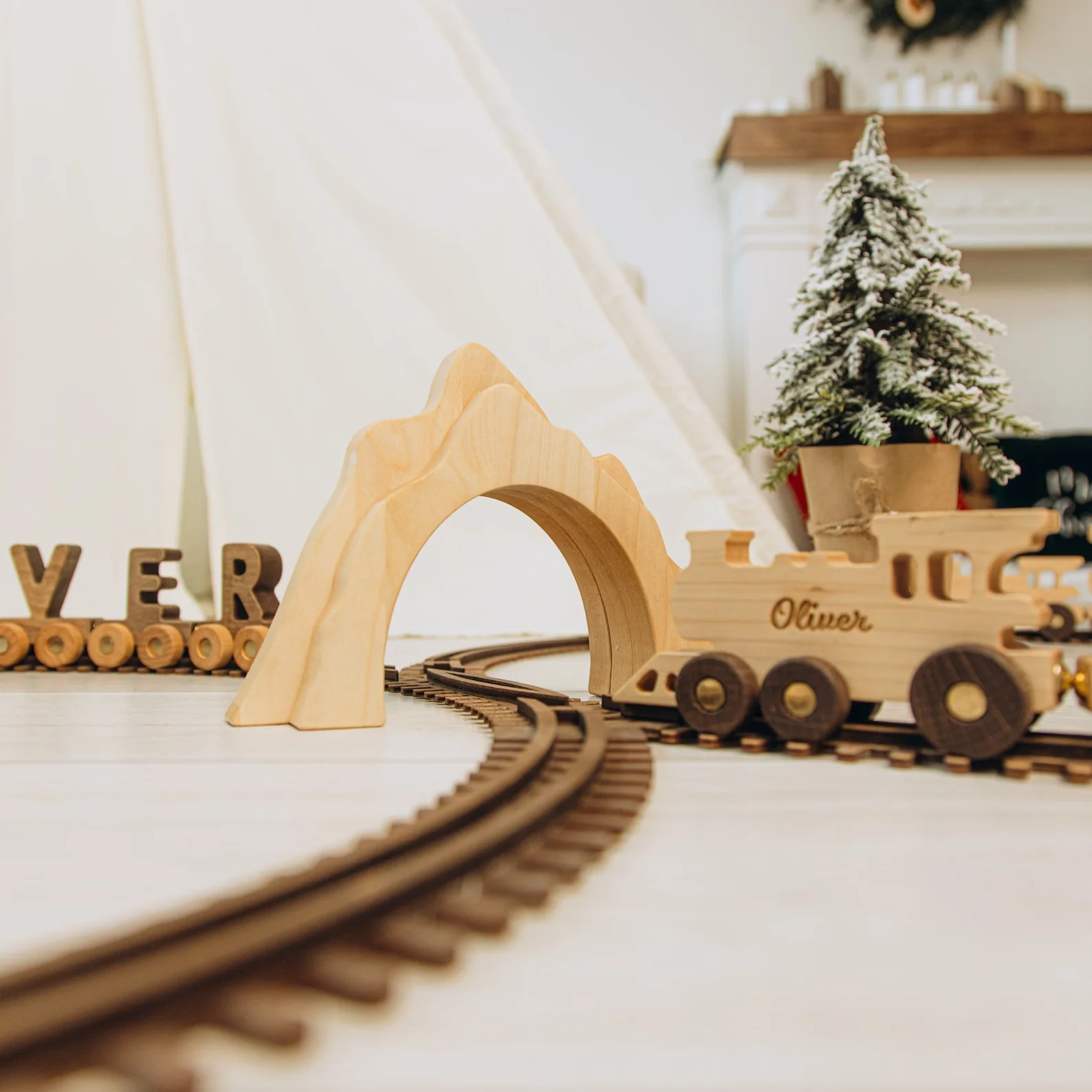
Wooden Eco-Toys and Their Impact on Child Development
In today's world, where nature conservation and the harmonious development of children are increasingly important, wooden eco-toys are becoming more than just a trend-they symbolize conscious consumerism. Made from natural materials like wood, these toys are environmentally friendly, safe for children, and aesthetically appealing.
The Impact of Wooden Toys on Child Development
Stimulating Creative Thinking and Imagination
Wooden toys often have simple yet thoughtfully crafted shapes that allow children to use their imagination to create different play scenarios. For example, a simple set of wooden blocks can be used to build towers, houses, cars, and even fantasy structures. Such games foster imagination, creativity, and problem-solving skills.
Enhancing Motor Skills and Coordination
Playing with wooden toys often requires certain physical efforts from children. For example, assembling a wooden puzzle or building a structure with blocks promotes fine motor skills and coordination. These skills are key for further development in writing, drawing, and other complex tasks.
Developing Cognitive Abilities
Games with wooden toys can involve tasks for logic, memory, and concentration. For instance, wooden puzzles, shape sorters, or counting sets stimulate cognitive development, helping children develop thinking skills, attention, and problem-solving abilities.
Emotional Development and Socialization
Wooden toys are often used for role-playing games, which help children better understand themselves and others. Through play, children learn cooperation, empathy, and social skills. For example, games like "construction" or "doctor" can teach children teamwork and how to express their emotions.
Find a large selection of eco-friendly toys at Busypuzzle: https://busypuzzle.com/

Environmental Benefits of Wooden Toys
Naturalness and Safety
Wooden toys are made from natural wood, making them environmentally clean and safe for children. Unlike many plastic toys, they contain no toxic substances and do not release harmful chemicals. Using natural materials also reduces the risk of allergic reactions, which is especially important for children with sensitive skin or allergies.
Durability and Reusability
Wooden toys are highly durable and long-lasting. They can serve children for years and are often passed down through generations. This longevity reduces the need for frequent new purchases, thereby reducing waste. When wooden toys eventually become unusable, they can be recycled or disposed of without harming the environment.
Reduced Environmental Impact
The production of wooden toys has a lower impact on the environment compared to plastic toys. The wood used is a renewable resource, and responsible forestry practices ensure that felled trees are replaced with new ones. This helps preserve natural resources and reduces the carbon footprint of toy production.

The Social Aspect of Natural Material Toys
Promoting Environmental Awareness
Choosing wooden toys is part of teaching children about environmental consciousness. Using natural materials in everyday life helps children develop a responsible attitude toward nature and resources, fostering environmental awareness from an early age, which can have a positive impact on a child's future.
Supporting Local Communities
Many wooden toy manufacturers are small businesses or family companies operating locally. Supporting such producers contributes to the development of local economies, preserves traditional crafts, and creates new jobs.
Wooden eco-toys are not only safe and environmentally friendly but also support children's harmonious development. They stimulate creativity, enhance motor skills, develop cognitive abilities, and encourage emotional expression. By choosing these toys for their children, parents make an important contribution not only to their child's growth but also to the protection of the environment. Wooden toys are a conscious choice that combines care for the future of our children and our planet




















